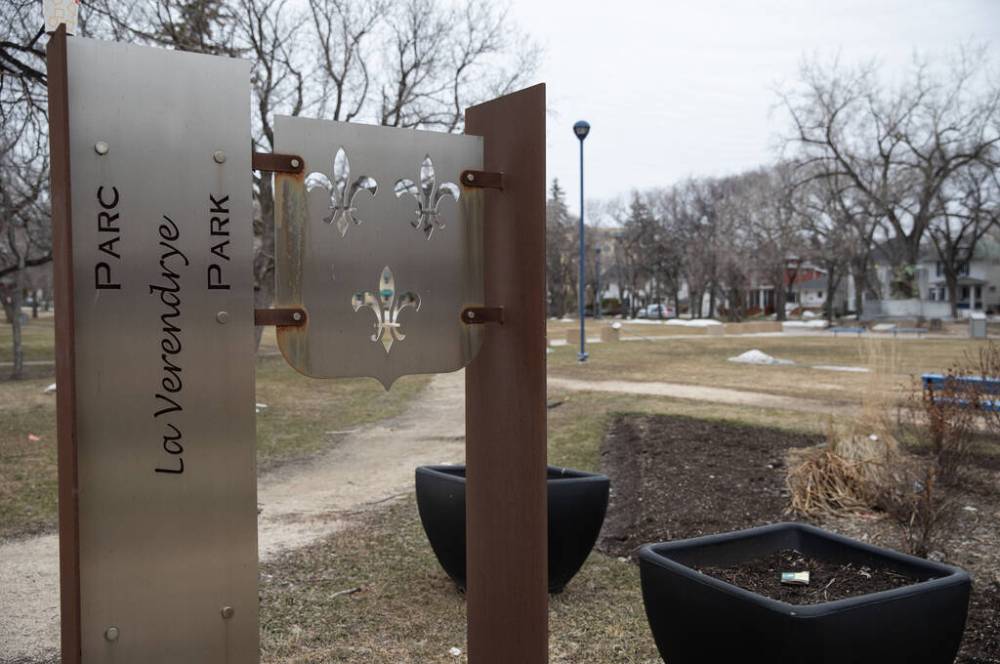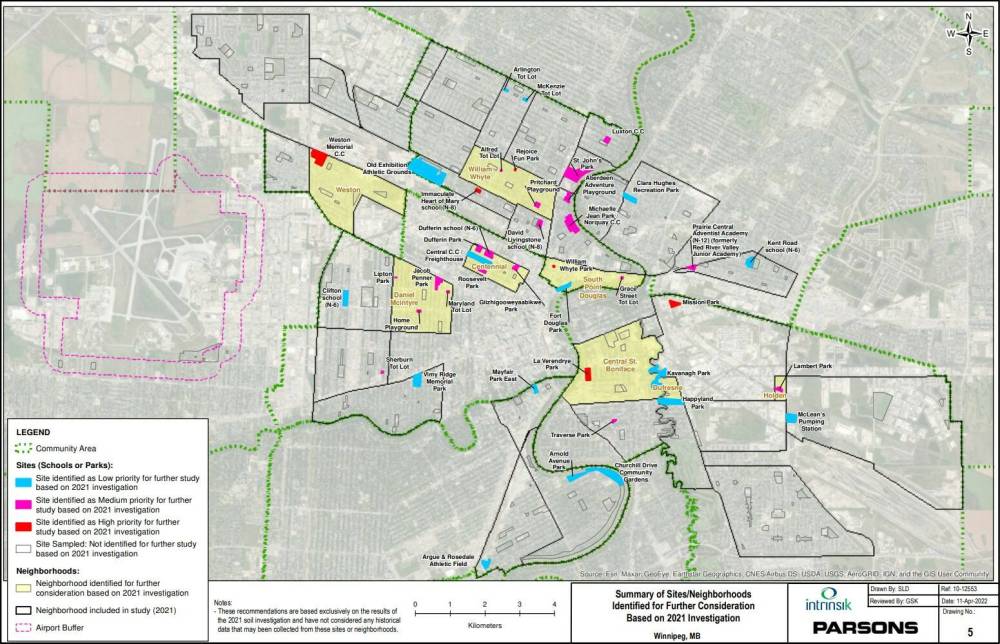City to take action after high lead levels found at sites
Advertisement
Read this article for free:
or
Already have an account? Log in here »
To continue reading, please subscribe:
Monthly Digital Subscription
$1 per week for 24 weeks*
- Enjoy unlimited reading on winnipegfreepress.com
- Read the E-Edition, our digital replica newspaper
- Access News Break, our award-winning app
- Play interactive puzzles
*Billed as $4.00 plus GST every four weeks. After 24 weeks, price increases to the regular rate of $19.00 plus GST every four weeks. Offer available to new and qualified returning subscribers only. Cancel any time.
Monthly Digital Subscription
$4.75/week*
- Enjoy unlimited reading on winnipegfreepress.com
- Read the E-Edition, our digital replica newspaper
- Access News Break, our award-winning app
- Play interactive puzzles
*Billed as $19 plus GST every four weeks. Cancel any time.
To continue reading, please subscribe:
Add Free Press access to your Brandon Sun subscription for only an additional
$1 for the first 4 weeks*
*Your next subscription payment will increase by $1.00 and you will be charged $16.99 plus GST for four weeks. After four weeks, your payment will increase to $23.99 plus GST every four weeks.
Read unlimited articles for free today:
or
Already have an account? Log in here »
Hey there, time traveller!
This article was published 29/04/2022 (1261 days ago), so information in it may no longer be current.
The City of Winnipeg says it will close off and install signage at Mission Park and Weston Memorial Community Centre when the ground thaws due to levels of lead in the soil that are higher than national guidelines.
The independent “Lead in Soil Testing in Winnipeg” report was commissioned by the Manitoba government as a follow-up to a 2019 report from Intrinsik that identified areas in Winnipeg that may have elevated lead concentrations in soil. It was released Friday.
In the fall, more than 2,000 surface soil samples were collected from 53 school properties and 149 parks — areas most often used by children under the age of seven, who are at greater risk from lead exposure, the report said.

Children and unborn babies are more sensitive to lead exposure than adults; even low levels of exposure can have negative effects on their behaviour and intellectual development, the provincial government said.
While 94 per cent of the samples had lead concentrations that were less than the national guidelines, several exceeded them, including six “high-priority” sites: William Whyte Park in South Point Douglas, Weston Memorial Community Club in Weston, La Verendrye Park in central St. Boniface, Mission Park in St. Boniface, Rejoice Fun Park in William Whyte and Immaculate Heart of Mary School on Flora Avenue.
Rod Picklyk, Immaculate Heart of Mary School principal, said safety is the top priority and the school is going “above and beyond” the province’s recommended mitigation strategies.
“Immediate plans are underway to excavate, remove, and re-sod the affected areas.”
He said that since the start of pandemic, all students have been required to sanitize their hands multiple times a day …” before recess breaks and lunch, after recess breaks, and throughout the school day during class changes.”
The other five “high priority” sites are at City of Winnipeg parks.
“For the majority of the priority sites, risk can be mitigated by maintaining good grass or other vegetative cover that will act as a barrier and prevent soil disturbance,” city spokeswoman Julie Dooley said.
Two sites — the eastern corner of Mission Park and one outdoor site at Weston Memorial Community Centre — require more active remediation, she said in an email.
For now, the affected areas at both sites remain accessible because the frozen ground prevents leaching of any toxins from the soil. The city will install fencing and signage at both areas in consultation with the province, and work with the department on remediation, Dooley said.
Of the 149 city-run park properties sampled,16 had minor exceedances for which no action was required; 14 were identified as low priority to remediate and 17 were identified as medium priority to remediate.

Property owners of sites that have lead levels above the national guideline have been notified, the province said.
They will be required to take steps to reduce potential exposure. The action that will be required will depend on the amount of lead in the soil and how the land is used, and could include adding or improving sod cover.
The risk of lead exposure is also significantly lower when soil is covered with grass, concrete, asphalt or other material, or when soil is frozen or covered with snow, it said.
Although the health risk of exposure to lead in soil is low, the province said starting in May, elevated blood-lead levels will be reportable to Manitoba Health on an interim basis “to help identify significant sources of lead exposure and determine the next steps to address them.”
Lead exposure has declined significantly in Canada in the last 40 years with the removal of lead in gasoline, paint and other products, the province said.
People are exposed to trace amounts of lead through air, soil, household dust, food, drinking water and consumer products.
carol.sanders@freepress.mb.ca
Lead in soil testing program report

Carol Sanders
Legislature reporter
Carol Sanders is a reporter at the Free Press legislature bureau. The former general assignment reporter and copy editor joined the paper in 1997. Read more about Carol.
Every piece of reporting Carol produces is reviewed by an editing team before it is posted online or published in print — part of the Free Press‘s tradition, since 1872, of producing reliable independent journalism. Read more about Free Press’s history and mandate, and learn how our newsroom operates.
Our newsroom depends on a growing audience of readers to power our journalism. If you are not a paid reader, please consider becoming a subscriber.
Our newsroom depends on its audience of readers to power our journalism. Thank you for your support.
History
Updated on Friday, April 29, 2022 6:45 PM CDT: Adds photo
Updated on Saturday, April 30, 2022 10:34 AM CDT: Adds response from Rod Picklyk

